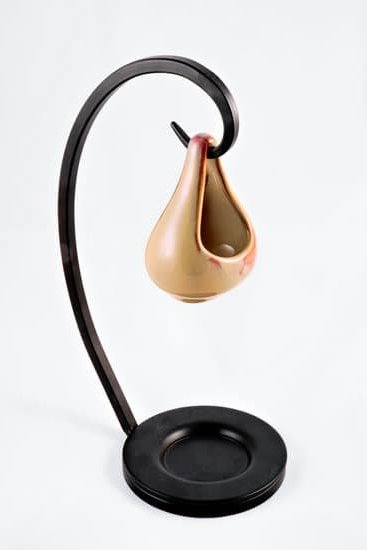Eucalyptus oil is a popular essential oil known for its refreshing aroma and various therapeutic benefits when used in aromatherapy. Derived from the leaves of the eucalyptus tree, this essential oil has been utilized for centuries for its healing properties. In this article, we delve into the question: what is eucalyptus oil used for in aromatherapy?
With a long history of use in traditional medicine practices, eucalyptus oil has become a staple in the world of aromatherapy. Its invigorating scent is not only pleasant but also serves as a natural remedy for a range of ailments. From easing respiratory issues to promoting relaxation and mental clarity, eucalyptus oil offers a versatile solution for holistic well-being.
In the following sections, we will explore the rich history of eucalyptus oil in aromatherapy, its numerous benefits for both physical and emotional wellness, various types of eucalyptus oil available, as well as practical methods and precautions to consider when incorporating this powerful essential oil into your aromatherapy routine. Stay tuned to discover how to harness the full potential of eucalyptus oil for your health and wellness needs.
History of Eucalyptus Oil in Aromatherapy
Eucalyptus oil has a rich history dating back to ancient times, where it was traditionally used by Indigenous Australians for its medicinal properties. The oil is extracted from the leaves of the eucalyptus tree through steam distillation, resulting in a potent and aromatic essential oil. This aromatic oil has been used for a variety of purposes throughout history, including in aromatherapy.
In traditional Chinese medicine, eucalyptus oil was known for its ability to promote respiratory health and clear congestion. It was often used in herbal remedies to help alleviate coughs, colds, and sinus infections. Additionally, eucalyptus oil was valued for its antiseptic properties and was used topically to treat wounds and skin infections.
During the 19th century, eucalyptus oil gained popularity in Western cultures for its refreshing scent and therapeutic benefits. It was commonly used in vapor rubs and chest balms to relieve respiratory symptoms such as coughing and congestion. As interest in natural remedies grew, eucalyptus oil became a staple in aromatherapy practices around the world. Today, its use continues to evolve as more research uncovers the potential benefits of this versatile essential oil.
- Eucalyptol: Known for its soothing effects on respiratory issues
- Citronellal: Has antibacterial properties that can help ward off infections
- α-Pinene: Provides an uplifting aroma that can boost mental clarity
Overall, the historical use of eucalyptus oil in aromatherapy showcases its long-standing reputation as a powerful healing tool. Its continued presence in modern wellness practices highlights the enduring appeal and effectiveness of this time-honored essential oil.
Benefits of Eucalyptus Oil for Aromatherapy
Eucalyptus oil is well-known for its versatility and numerous benefits in aromatherapy. Here are some of the key advantages of using eucalyptus oil in your aromatherapy practice:
- Respiratory Support: Eucalyptus oil is widely used to support the respiratory system. It can help alleviate symptoms of congestion, coughs, and sinus infections. The anti-inflammatory properties of eucalyptus oil can also aid in easing breathing difficulties.
- Immune System Booster: The antimicrobial and antibacterial properties of eucalyptus oil make it a great choice for boosting the immune system. Diffusing eucalyptus oil in your space can help purify the air and reduce the spread of germs.
- Mental Clarity: Eucalyptus oil is known for its invigorating and uplifting aroma, which can help improve mental clarity and focus. It is often used in aromatherapy blends to promote alertness and concentration.
In addition to these benefits, eucalyptus oil is also effective for relieving muscle pain and inflammation, as well as promoting relaxation and stress relief. Its refreshing scent makes it a popular choice for both physical and emotional wellness in aromatherapy practices.
When using eucalyptus oil for aromatherapy, it is important to choose high-quality, pure essential oils that are free from additives or fillers. Whether you diffuse eucalyptus oil, use it topically in massage oils, or incorporate it into DIY blends, this powerful essential oil can enhance your overall well-being through its numerous therapeutic benefits.
Different Types of Eucalyptus Oil and Their Uses
Eucalyptus oil is extracted from the leaves of eucalyptus trees, primarily found in Australia. There are over 700 species of eucalyptus trees, but the most commonly used for essential oil production in aromatherapy are Eucalyptus globulus and Eucalyptus radiata. Each type of eucalyptus oil has its own unique aroma and therapeutic properties that make them suitable for various uses in aromatherapy.
Eucalyptus globulus is known for its strong, fresh, and invigorating scent. It is often used to help clear the mind, promote respiratory health, and provide a refreshing atmosphere. This type of eucalyptus oil is commonly used in diffusers to purify the air and support respiratory function.
On the other hand, Eucalyptus radiata has a softer and sweeter aroma compared to Eucalyptus globulus. It is praised for its antimicrobial properties and is frequently used to alleviate congestion, ease muscle tension, and promote relaxation. This type of eucalyptus oil is often included in massage blends or steam inhalations to support overall well-being.
| Type of Eucalyptus Oil | Main Uses |
|---|---|
| Eucalyptus Globulus | Clears the mind, promotes respiratory health, purifies the air |
| Eucalyptus Radiata | Alleviates congestion, eases muscle tension, promotes relaxation |
When choosing a type of eucalyptus oil for aromatherapy purposes, it’s essential to consider your specific needs and desired effects. Some blends may combine different types of eucalyptus oils to enhance their overall therapeutic benefits. Experimenting with various types can help you find the perfect match for your individual preferences and wellness goals when using what is eucalyptus oil used for in aromatherapy in your daily routine.
How to Use Eucalyptus Oil in Aromatherapy
Eucalyptus oil is a versatile essential oil that has been widely used in aromatherapy for its various benefits. When it comes to the question of what is eucalyptus oil used for in aromatherapy, the answer lies in its therapeutic properties. Eucalyptus oil is known for its refreshing and invigorating aroma, making it a popular choice for promoting feelings of relaxation and clear breathing.
One common method of using eucalyptus oil in aromatherapy is through inhalation. This can be done by adding a few drops of eucalyptus oil to a bowl of hot water and inhaling the steam. Alternatively, you can add a few drops to a diffuser or humidifier to fill the room with the refreshing scent of eucalyptus. Inhaling eucalyptus oil can help clear the sinuses, reduce congestion, and provide relief from respiratory issues.
Another popular way to use eucalyptus oil in aromatherapy is through topical application. However, it is important to note that eucalyptus oil should always be diluted with a carrier oil before applying it to the skin to avoid irritation. You can create your own massage blend by combining eucalyptus oil with a carrier oil such as coconut or jojoba oil. This blend can be used to soothe sore muscles, ease joint pain, and promote relaxation during massages.
| Benefits | Methods |
|---|---|
| Promotes relaxation and clear breathing | Inhalation: steam or diffuser |
| Relieves congestion and sinus issues | Topical application: diluted with carrier oil for massages |
Precautions and Considerations When Using Eucalyptus Oil in Aromatherapy
Eucalyptus oil has gained popularity in aromatherapy due to its refreshing scent and numerous health benefits. However, it is important to use this essential oil with caution as it can be potent and may cause adverse reactions if not used properly. In this section, we will discuss some precautions and considerations to keep in mind when using eucalyptus oil in aromatherapy.
Dilution
One of the most important things to remember when using eucalyptus oil in aromatherapy is to always dilute it properly. Eucalyptus oil is highly concentrated, so it should never be applied directly to the skin without being diluted with a carrier oil. The recommended dilution ratio for eucalyptus oil is typically between 1-2% for adults and even lower for children or those with sensitive skin.
Allergies and Sensitivities
It is crucial to perform a patch test before using eucalyptus oil topically to check for any allergic reactions or skin sensitivities. Some individuals may be allergic to eucalyptus oil, so it’s important to be cautious, especially if you have a history of allergies. If any irritation occurs after applying the diluted eucalyptus oil, discontinue use immediately.
Inhalation Safety
When using eucalyptus oil for inhalation purposes, such as in a diffuser or steam inhalation, it’s essential to use it in a well-ventilated area. Prolonged exposure to high concentrations of eucalyptus oil vapor can cause respiratory issues in some individuals. Always follow the recommended guidelines on how many drops of eucalyptus oil to use in your chosen method of inhalation.
Recipes and DIY Blends Using Eucalyptus Oil for Aromatherapy
Eucalyptus oil is a versatile essential oil that has been used for centuries in aromatherapy due to its numerous therapeutic benefits. When it comes to creating DIY blends and recipes for aromatherapy, eucalyptus oil is a popular choice due to its invigorating scent and powerful properties. Whether you are looking to ease respiratory issues, boost mental clarity, or simply freshen up your space, eucalyptus oil can be a valuable addition to your aromatherapy routine.
Refreshing Eucalyptus Shower Melts
One popular DIY recipe using eucalyptus oil is refreshing shower melts. These easy-to-make shower melts are perfect for those mornings when you need an extra boost of energy. To make these shower melts, you will need baking soda, water, and eucalyptus oil.
Simply mix the ingredients together until they form a paste, then spoon into ice cube trays and let them harden in the freezer. Pop a shower melt into the bottom of your shower and enjoy the invigorating aroma of eucalyptus as it fills the steamy air.
Soothing Eucalyptus Chest Rub
Another fantastic recipe using eucalyptus oil is a soothing chest rub. This homemade chest rub can help relieve congestion and promote easier breathing when applied to the chest and throat. To create this blend, combine eucalyptus oil with coconut oil or shea butter for a nourishing base. You can also add other essential oils like peppermint or lavender for added benefits. Store the chest rub in a small jar and apply as needed to help alleviate respiratory discomfort.
Revitalizing Eucalyptus Room Spray
If you’re looking to freshen up your living space, consider making a revitalizing eucalyptus room spray. This simple recipe involves mixing distilled water with witch hazel or vodka as a base, along with eucalyptus oil for its deodorizing and uplifting properties.
You can customize the scent by adding other essential oils like lemon or rosemary for a unique blend. Use this room spray to purify the air, eliminate odors, and create a calming atmosphere in any room of your home.
Conclusion
In conclusion, eucalyptus oil is a versatile and effective essential oil that has been used in aromatherapy for centuries. With its rich history and numerous benefits, it has become a staple in many households for promoting wellness and relaxation. From easing respiratory issues to relieving muscle pain, the benefits of eucalyptus oil in aromatherapy are wide-ranging.
Whether you choose to diffuse eucalyptus oil, apply it topically, or use it in DIY blends, there are various methods and techniques to incorporate this powerful essential oil into your aromatherapy routine. Its refreshing and invigorating scent can uplift your mood and create a calming atmosphere in any space.
However, it is important to note that eucalyptus oil should be used with caution, as it can be potent and may cause skin irritation if not diluted properly. Before using eucalyptus oil in aromatherapy, always do a patch test and follow recommended guidelines for safe usage. Overall, the versatility and effectiveness of eucalyptus oil make it a valuable addition to any aromatherapy collection.
Frequently Asked Questions
What Is Inhaling Eucalyptus Oil Good For?
Inhaling eucalyptus oil is good for treating respiratory issues such as coughs, colds, sinus congestion, and bronchitis. Its anti-inflammatory and decongestant properties help to clear the airways and promote easier breathing.
What Does Eucalyptus Essential Oil Repel?
Eucalyptus essential oil is known to repel insects such as mosquitoes, ticks, fleas, and lice due to its strong scent that bugs find unpleasant. It can be used as a natural alternative to chemical insect repellents.
Is Eucalyptus Oil Good in a Diffuser?
Eucalyptus oil is excellent in a diffuser because it can help purify the air, reduce inflammation, relieve stress and anxiety, boost mental clarity, and promote relaxation. Its fresh and invigorating aroma can create a calming environment in any space.

Are you looking for a natural way to improve your health and wellbeing?
If so, aromatherapy may be the answer for you.





